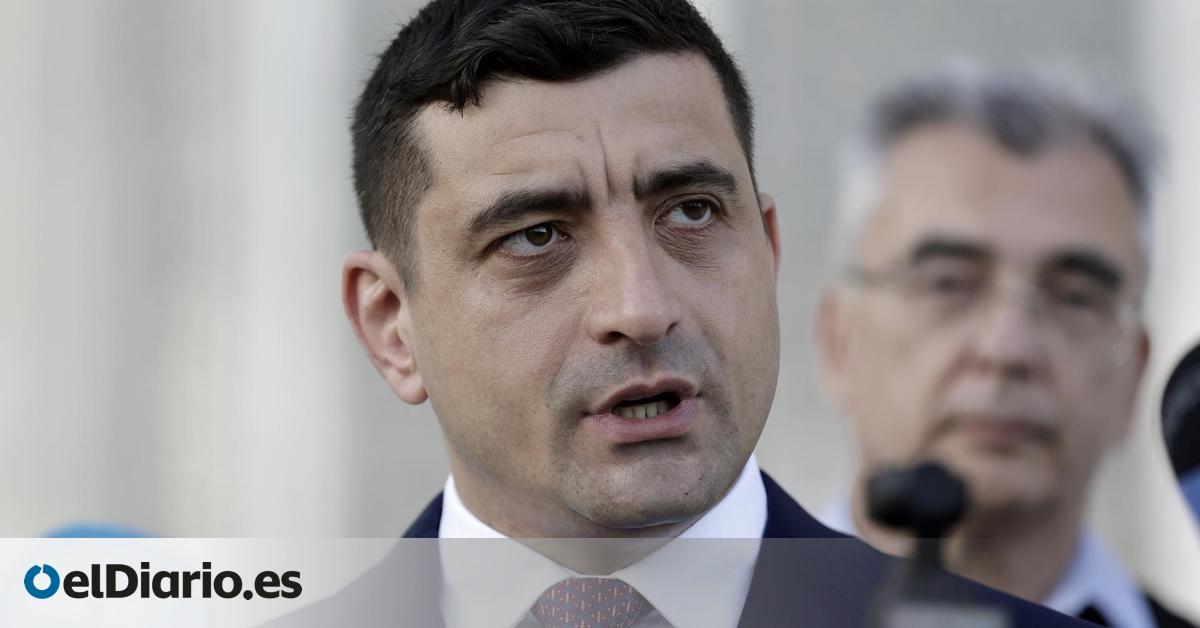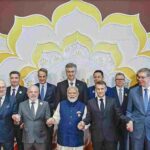
The controversial repetition of the Romanian presidential elections has elapsed this Sunday without incident and with a slightly higher participation to that of the annulled elections of the month of November. With almost the entire scrutiny vote, the results place in first position with more than 40% of ballots to the ultra -nationalist candidate, George Simion, and the independent liberal candidate, Nicușor Dan, as the second most voted with about 21% of support.
The prorruso candidate Simion was the most voted after receiving great support from the rural areas of Romania as well as abroad and achieved more than 40% of the votes. The official candidate, Crin Antonescu, has been left out of the second round after being surpassed by votes by the mayor of Bucharest, Nicușor Dan.
Antonescu granted his defeat last night and indirectly recommended his followers and the other voters vote for Dan in the second round. In the fourth position, the populist Víctor Ponta has been located, with 13.5% of the votes, and his followers will be key in the second round, which will be held within two weeks.
Precisely one of the leaders of his political family, the Vox spokesman, Santiago Abascal, became one of the first politicians to congratulate the ultra -nationalist candidate. Abascal has pointed out that, with this victory, “freedom of expression and democracy make their way.” “The Romanian people are getting closer to recovering their freedom and sovereignty in front of the liberticide wave that European in the hand of the European Commission of Popular and Socialists,” he said on the social network X (formerly Twitter).
According to the data of the AEP electoral authority, at the close of the electoral colleges had voted 53.21% of the nearly 18 million citizens with the right to vote, half a percentage point more than in 2024, including 973,000 votes of residents outside Romania. The vote of the important Romanian diaspora has increased to a large extent, which has been able to vote in the diplomatic legations abroad, where almost 60 % of the million voters supported Simion.
A quiet election day despite the political crisis
First thing in the morning, the main favorite to win this first round, Simion, voted on the outskirts of Bucharest, accompanied by the disabled Calin Georgescu, winner of the elections last November, which were annulled by accusations of irregular financing.
Georgescu, which did not exceed 5% support until a few weeks before the appointment with the polls, experienced meteoric growth in the surveys and, finally, won the elections with 22.9% of the votes, leading the country to a second presidential round (which never came to be held).

48 hours before the celebration of the second round, the Constitutional Court, in an unprecedented decision in the EU, annulled the electoral results and ordered to repeat the entire process citing its role to “ensure compliance with the process”. Georgescu condemned the decision and appealed to the European Court of Human Rights, which did not admit his case to process. Even his rival in the hypothetical second round, Elena Lasconi, president of a Proeuropean Liberal Party, criticized the measure as a “trampling of democracy.”
Since then, the country suffers a political crisis under the shadow of Russian interference in which mercenaries, spies and organizations of extreme right participate. The surveys prior to Sunday’s elections foresee that the leader of the Ultranationalist Party Aur could reach up to a third of the votes, far ahead of its main rivals, Antonescu and Dan.

After knowing his probable victory, Simion, a 38 -year -old populist national, spoke to his followers through a message recorded from his office. “Today we wrote history. We approach an exceptional result. I congratulate you. They are victors. Today the Romanian people have spoken. It’s time to be heard,” he said.
“I am here for Romania to return to the constitutional order. My only objective is to return to the Romanian people what they have stolen,” he added in allusion to the cancellation of the November elections.

The president in Romania has important powers, especially in terms of foreign and security policy. The EU and other Western partners of Romania have continued with special interest and concern these elections, for the positions of some candidates regarding the European Union and Western aid for neighboring Ukraine before the Russian invasion.
Source: www.eldiario.es

